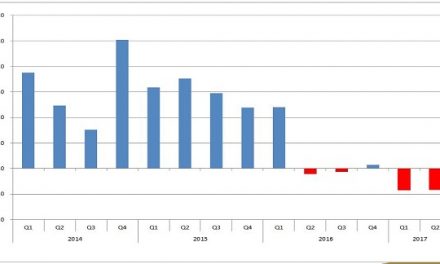
Where is the 60% majority whose voice has not been heard on the civil service strike?

A week ago, on Tuesday 26 July 2022, the Office of the Prime Minister put out an update on the negotiation process between the government and the two trade unions representing most of the civil servants.
Working through this document, I came under the impression that much reflection went into its compilation, and, perhaps more important, it was rational.
Take for instance paragraph 4 under the heading Economic and Fiscal Situation:
“Economic activities in Namibia have been in a recession for 5 years, recording a contraction of 0.9 percent in 2019. The situation was worsened by the outbreak of the COVID-19 pandemic in 2020, which resulted in a decline of 7.9 percent in 2020. The pandemic reduced the performance of a broad range of sectors that were already under pressure, thereby further worsening the fiscal situation of the Government.”
Now, in my mind, that is about as honest as one can be. No fuzz, just stating the facts, and they are all painfully true.
The rest of the document reflects the same tenor. Factual, precise, to the point, and transparent.
Another brief statement that caught my eye is paragraph 9: “Even in the face of the hardships as above, the Government committed itself to neither retrench nor cut the salaries of Government employees. These hardships, we observe, regrettably, how in the private sector some employees are laid off, and some have their salaries reduced, to save jobs.”
The grammar may suck and the vocab may be limited but what it conveys is an important statement of fact. As far as I can remember, nowhere over the past five and a half years have I come across any mention of the Public Service Commission weighing its options to retrench civil servants or to force them to take pay cuts.
In 2017 the then finance minister showed us (the media) some projections of the cost of the civil service wage bill. In short, it was exorbitant, making up nearly 60% of total current expenditure. Somewhere during the press conference, the minister still made the statement that if all the benefits, especially PSEMAS, are added, the total Cost to Company gets closer to 72%.
At that time there was also talk of reducing the civil service by 2% per year through natural attrition but that same minister told me at a later engagement that the 2% target was ‘ambitious’ and would probably never materialise. As the recession persisted and deepened, people working for the government clung to their jobs and even among the high-flyers, mobility was limited. But as the minister also observed, ‘When a management position goes open, it has to be filled.’ No-one can fault that logic.
So all through 2017, 2018 and 2019 the economy limped on while the government was forced to float a massively inflated borrowing plan to keep its vast, bloated civil service operational. And still not a sound about retrenchments or pay cuts. I, for one, regard this as highly commendable.
Then came Covid and an already difficult situation became dire. The result was that civil servants had to forego on wage increases for five years but the flipside of the coin remains that nobody lost his or her job through any action from the government’s side.
Then the fat lazy dogs woke up and realised they have to earn the union contributions they receive every month. And what better bone to pick than the government’s lack of wage increments and force a showdown between the government and its own employees.
As is now known by everybody, from last Tuesday to Friday a lot happened. Citing some sub-clauses in the Labour Act, the unions decided to put the issue of a strike to the vote. It was at this point that things became very interesting but also very sticky depending on whose clueless advice you chose to follow.
The daily press had a ball of a time in the two voting days with words like “overwhelming” and “massive turnout” glibly thrown around in screaming headlines. This frenzy continued into this week when we were loudly informed that 42000 civil servants voted Yes to strike while only 1200 voted No.
Does this mean there are only 1200 individuals with common sense working for the government? If that be the case, then I am even more concerned for our bureaucratic future than I usually am. What happened to the 60% that did not vote?
Yip, look at the stats again. Only 43,000 and a bit out of 108,000 voted. That is a whisker short of 40% so the question still begs: Where is the voice of the majority of civil servants? In my book, 60% of workers in a single entity, is a very significant number. Or are they perhaps the people who realised that if it were not for their employer, the government, they would have been begging along the roads if economic reality had to dictate Human Resources policies.
Finally, I think the time has come that every Namibian must decide whether the unions look out for us, or whether they are the country’s number 1 enemy. It is clear that they look out for themselves, their extravagant lifestyles portray this, but what do they do for their constituency other than trying desperately to destroy an economy that is already in ruins.











































